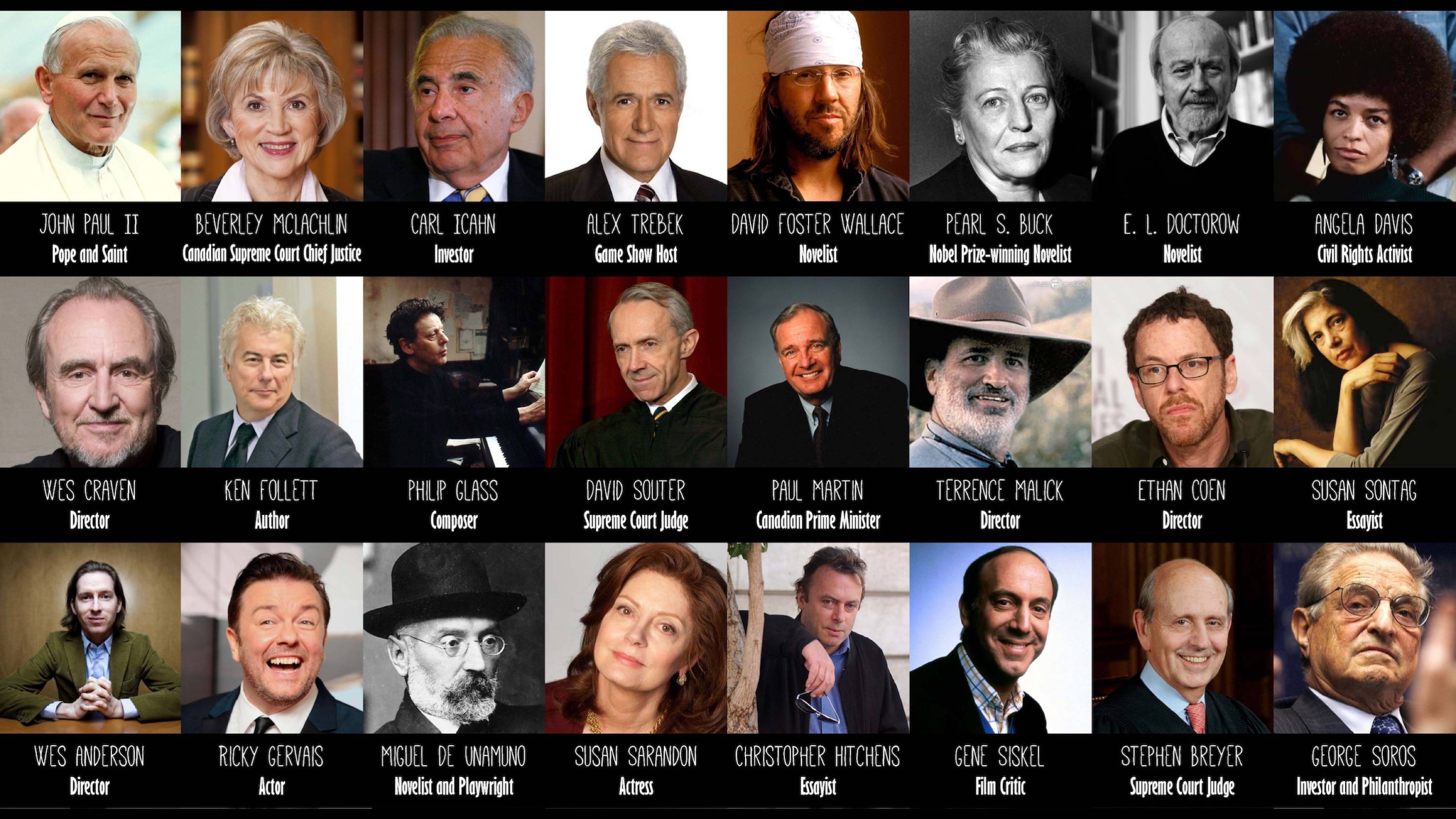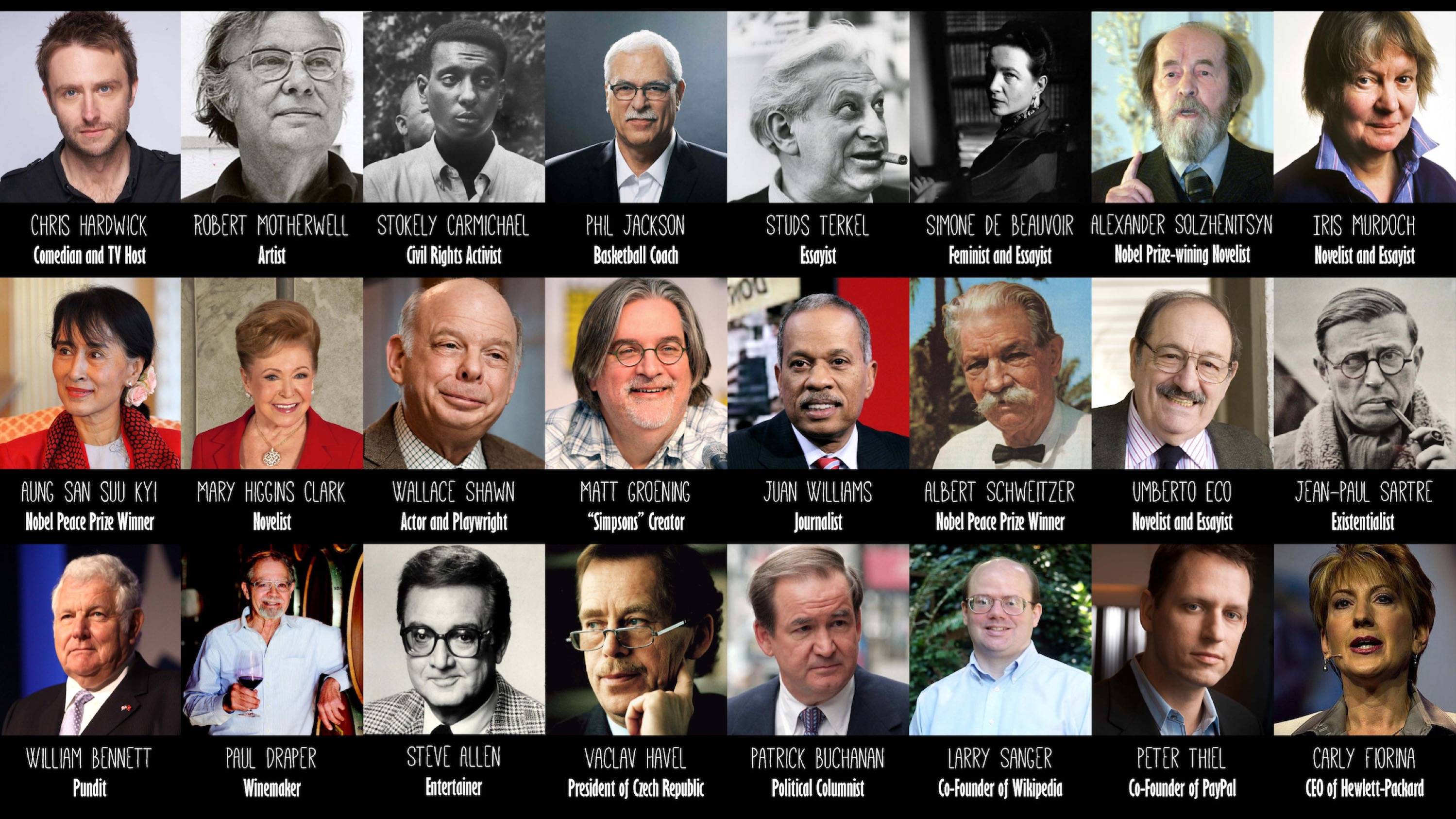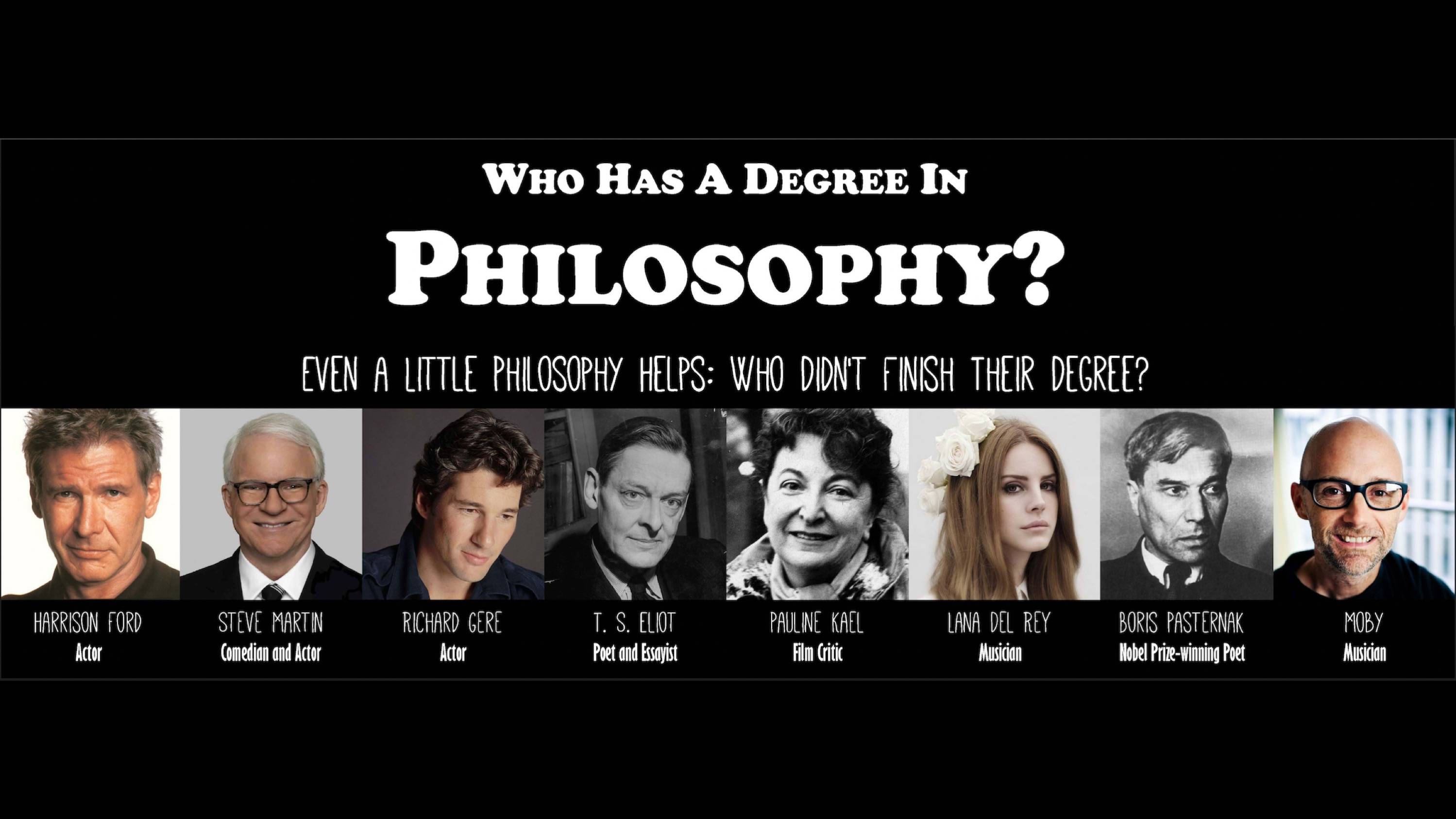Who Has a Degree in Philosophy?
What is the practical value of studying philosophy?
-
What careers are available for a student who majors or minors in philosophy?
We are all familiar with such remarks as, "He's studying philosophy: he's not interested in a job!" This is far from true about our majors and minors. While few of them are interested in becoming professional philosophers who teach at universities, the vast majority of them understand how useful the study of philosophy can be for virtually any career. Many of our majors and minors are pre-law students interested in developing powers of argumentation that are so important in the lawyer's work with juries and judges. Philosophy majors have successfully pursued graduate studies in Medicine, Dentistry, Business, Literature, Mathematics, Computer Science, Anthropology, Political Science, Counseling, Sociology, and in the Seminary. Philosophy majors do very well on standardized graduate and professional admissions exams, scoring well above average on the LSAT, GRE, and GMAT. Philosophy graduates pursue careers in business, journalism, psychology, art, politics, consulting, marketing, or teaching - the list goes on. In each case the student realizes that the successful lawyer, business person, or physician is the good thinker, and that it is the Philosophy Department where the focus is on good thinking.
One area in which there is increasing demand for the skills and knowledge nurtured by the study of philosophy is Applied Philosophy and Ethics. Recent scandals and problems in business and government have highlighted the important role of ethics in corporate and public life. Advances in medical practice and research have created a growing need for medical and research ethicists who might work directly with genetic researchers, or assist patients and care-givers in morally difficult situations. The challenge of global climate change, and its implications for all areas of our lives has raised the awareness of, and need for, philosophical and ethical reflection on environmental concerns.
Taking this into account, the question might be, "Why wouldn't all students want to add the study of philosophy- as a major or minor- to their career plans?" Recognizing that students with very different goals and interests may be minoring in philosophy, the department requires no specific courses of its minors- only 18 hours in philosophy.
You might find these articles of interest:Philosophers Find the Degree Pays Off in Life And in Work
In a New Generation of College Students, Many Opt for the Life Examined
-
Does the Philosophy Department have anything special to offer its students?
Yes, it does, both in and outside the classroom. Small classes conducive to the students' participation in the study of questions about the nature of morality, God, the universe, art, law, and knowledge are offered by members of the Philosophy faculty. In addition, the department is very much concerned about its students' welfare outside the classroom.
The department established on campus a chapter of the national honor society in philosophy, Phi Sigma Tau. And our students are always welcome and encouraged to spend time with us in the department where they may converse with faculty members and fellow students or read one of the many philosophical journals in the department library. Furthermore, the department sponsors movie nights, an ethics bowl, and hosts its own dialogue series with various speakers, including faculty and students from all over the university.
-
What about course offerings and the faculty?
All member of the philosophy faculty have a deep commitment to teaching the exciting ideas and useful critical methods in the field of philosophy. Texas State Philosophy Faculty have special interests in the nature of knowledge, God, reality, or morality; others specialize in political and legal philosophy, philosophy of art, of mind, of human experience, or of language. The department offers courses in each of these areas and we have newly developed courses in Environmental Ethics, Philosophy of Sport, and Philosophy of Technology. Grounded in a core group of courses, students have considerable flexibility in selecting from among our upper-level courses to complete a bachelor of arts with a major in philosophy.
As authors of articles, essays, and books, members of the faculty are active in creating new philosophical knowledge. Their activities have led them to serve as officers of regional, national, and international philosophical societies and to hold such positions in the community as municipal court judge, caretaker of the University Camp, and advisor to a radio station, to name a few. In this department, students can look to the faculty for good role models for developing as good thinkers and citizens.
-
The Unexpected Way Philosophy Majors Are Changing The World Of Business
Dr. Damon Horowitz quit his technology job and got a Ph.D. in philosophy -- and he thinks you should too.
"If you are at all disposed to question what's around you, you'll start to see that there appear to be cracks in the bubble," Horowitz said in a 2011 talk at Stanford. "So about a decade ago, I quit my technology job to get a philosophy PhD. That was one of the best decisions I've made in my life."
As Horowitz demonstrates, a degree in philosophy can be useful for professions beyond a career in academia. Degrees like his can help in the business world, where a philosophy background can pave the way for real change. After earning his PhD in philosophy from Stanford, where he studied computer science as an undergraduate, Horowitz went on to become a successful tech entrepreneur and Google's in-house philosopher/director of engineering. His own career makes a pretty good case for the value of a philosophy education.
Despite a growing media interest in the study of philosophy and dramatically increasing enrollment in philosophy programs at some universities, the subject is still frequently dismissed as outmoded and impractical, removed from the everyday world and relegated to the loftiest of ivory towers.
-
Tech Leave You Cold? Major in Philosophy!
What I learned about existentialism, Greek philosophy, history of philosophy, analytic philosophy, philosophy of religion, ethics, logic and a full senior-year seminar on one book -- where Martin Heidegger substituted "Time" for Sartre's "Nothingness" -- was invaluable for its own sake. And here's the bonus: philosophy turned out to be more relevant for my career than all the business and management books I forced myself to read -- combined. (TO READ THE FULL ARTICLE CLICK THIS LINK)
-
Why Study Philosophy? - An interview with Rebecca Newberger Goldstein, author of Plato at the Googleplex
Why Study Philosophy? 'To Challenge Your Own Point of View'
At a time when advances in science and technology have changed our understanding of our mental and physical selves, it is easy for some to dismiss the discipline of philosophy as obsolete. Stephen Hawking, boldly, argues that philosophy is dead.
Not according to Rebecca Newberger Goldstein. Goldstein, a philosopher and novelist, studied philosophy at Barnard and then earned her Ph.D. in philosophy at Princeton University. She has written several books, won a MacArthur “Genius Award” in 1996, and taught at several universities, including Barnard, Columbia, Rutgers, and Brandeis.
Goldstein’s forthcoming book, Plato at the Googleplex: Why Philosophy Won’t Go Away, offers insight into the significant—and often invisible—progress that philosophy has made. I spoke with Goldstein about her take on the science vs. philosophy debates, how we can measure philosophy’s advances, and why an understanding of philosophy is critical to our lives today.


